Time and again, people who soak seeds and nuts before consuming them tell us that they’ve actually lost their nut intolerances. This could be related to phytic acids and lectins!
What Are the Effects of Phytic Acid?
Phytic acid is a secondary plant substance and is found primarily in plant seeds (oilseeds, cereal products, and legumes) and nuts. Phytic acid can also be found in pseudocereals like buckwheat and quinoa.
Serves the Plant Itself
Phytic acid is a phosphorus compound. It serves as a nutrient store until the start of the germination process. Through the action of water and heat, enzymes called phytase become active in the seed. These break down the phytic acid, releasing the stored phosphorus and making it available to the baby plant as an important nutrient for growth and development – a remarkable natural process.
Blocks Digestive Enzymes
Unfortunately, the very thing that is beneficial to plants has detrimental effects on our own digestion. Here’s why: phytic acid blocks the enzymes pepsin and trypsin, which are responsible for breaking down proteins in the gastrointestinal tract (1). So consuming phytic acid makes it harder for us to digest seeds, nuts, and legumes, which are all particularly rich in valuable vegetable protein.
People who are sensitive to this or eat a diet that’s too rich in phytic acids experience the consequences in the form of bloating, flatulence, abdominal pain, and other digestive problems.
Reduces Bioavailability of Minerals
Phytic acid also has the property of binding minerals like magnesium (2), calcium, iron (3) and zinc. To put it plainly, this means that a large portion of these minerals end up not being absorbed by the body and are excreted without being used.
Small Amounts of Phytic Acids Are Beneficial to Health
That being said, phytic acids are not entirely harmful. An interesting result of one particular study shows that phytic acids have an antioxidant effect and healthy properties in healing cancer, for example (4). Also the American physician and expert on vegan nutrition, Dr. Michael Greger, describes in his book How Not to Die how phytic acids in small quantities can promote good health and in particular balance the blood sugar level.
Are you interested in gaining a comprehensive understanding of the health benefits of a plant-based diet? Download the curriculum for our Holistic Nutrition Coach training program.
What Effects Do Lectins Have on Our Health?
Lectins are proteins or glycoproteins. Like phytic acid, they’re protective substances that protect seeds and other plants from predators. So in this way they act as a kind of “natural pesticide.”
Lectins in Legumes, Cereals, and Nightshade Plants
People who eat a plant-based diet consume various lectins in their diet on a daily basis. While most of them are considered harmless, lectins are known to be toxic to the body, especially in raw legumes (5), grains, and nightshade vegetables (including eggplants, tomatoes, bell peppers, and potatoes). Peanuts, corn, pumpkin seeds, sunflower seeds, chia seeds, and cashews are all considered to have lower levels of lectin.
It’s suspected that lectins are able to bind to the intestinal walls and cause damage there. Because of this, lectins are thought to be linked to leaky gut syndrome and autoimmune diseases (7). In the blood, they bind to our red blood cells, which then clump together and can block the transportation of oxygen and nutrients, and can also promote inflammation.
Depending on genetic predisposition and health conditions, some people are particularly susceptible to the harmful effects of lectins (8).
However, it’s also been shown that they’re partially eliminated by sprouting and fermentation, and completely destroyed through cooking (6).
Buckwheat, hemp seeds, hazelnuts, coconut, macadamia nuts, almonds, Brazil nuts, pecans, pine nuts, pistachios, walnuts, flaxseeds, and sesame seeds are considered completely lectin-free.
Don’t Be Afraid of Anti-nutrients
If we look at the facts, it starts to make sense why the consumption of nuts and seeds can lead to digestive disorders, allergies, and mineral deficiencies in more sensitive people. Nevertheless, it’s important not to let this create a fear of anti-nutrients, since they can still be beneficial to our health when consumed in moderation.
Balance and Variety Are the Order of the Day
As is so often the case, it’s the dose that makes the poison! So grains, legumes, nuts, and seeds shouldn’t be avoided completely, but they also shouldn’t be consumed in amounts that are too large. And anyone who wants to integrate these foods into their diet would do well to look into soaking them.
Soak Seeds and Nuts
Soaking grains, legumes, seeds, and nuts in water has a number of health benefits, and helps in taking full advantage of these nutrient-rich, plant-based foods.
Exposure to water and heat brings the seeds to life and starts a transformation process:
Controversial Opinions
It’s difficult to give “correct” instructions for soaking grains, legumes, seeds, and nuts:
DIn the science world, there are currently too many different tables for soaking times, different expert opinions, and also controversial claims.
For example, some scientific studies question the soaking of nuts in particular, since an elimination of phytic acid could not be proven (10). And other studies show that soaking and rinsing, in addition to a breakdown of phytic acids, can result in the loss of a lot of welcome nutrients (11)(12).
The arguments for soaking are:
- Soaking grains and legumes is a tradition and is still common in many cultures today.
- The experience of a large number of training participants and clients has shown that seeds and nuts are better tolerated after being soaked first.
Instructions – This Is How It Works
For morning cereal, it’s a good idea to soak the desired amount of seeds, nuts, grains, or pseudocereals like buckwheat, sunflower seeds, oats, flaxseeds, or almonds in water overnight and then thoroughly rinse them with filtered water in the morning. The soaking water, now full of the dissolved enzyme inhibitors, should be poured out.
The small spikes on the surface show that the germination process has been initiated or is already in full swing. In this state, they can be mixed with muesli or used to make porridge and overnight oats.
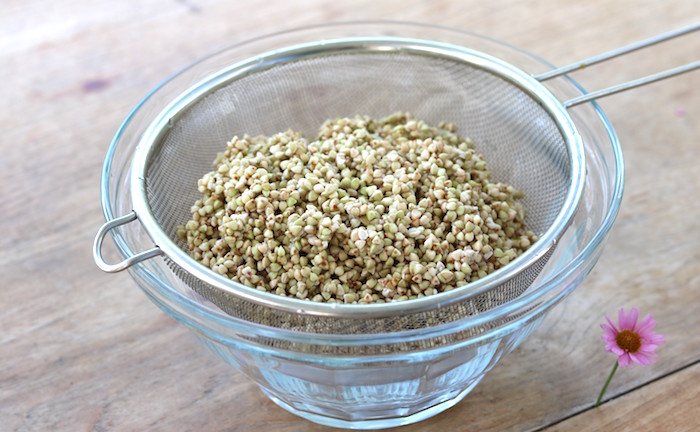
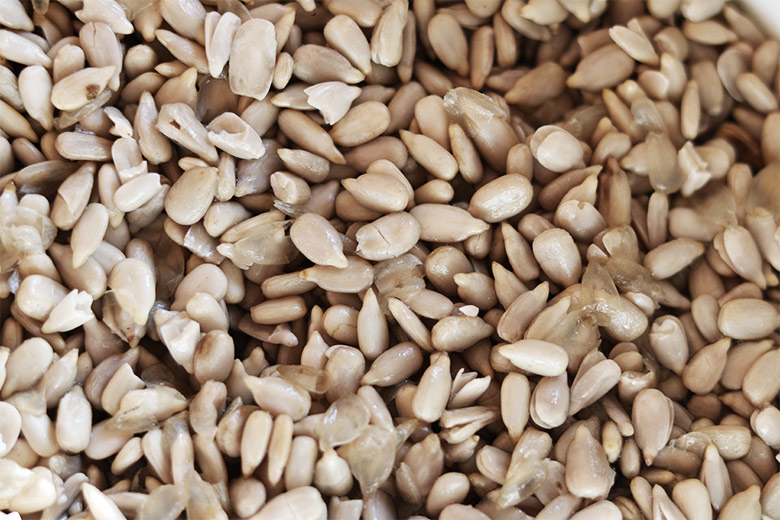
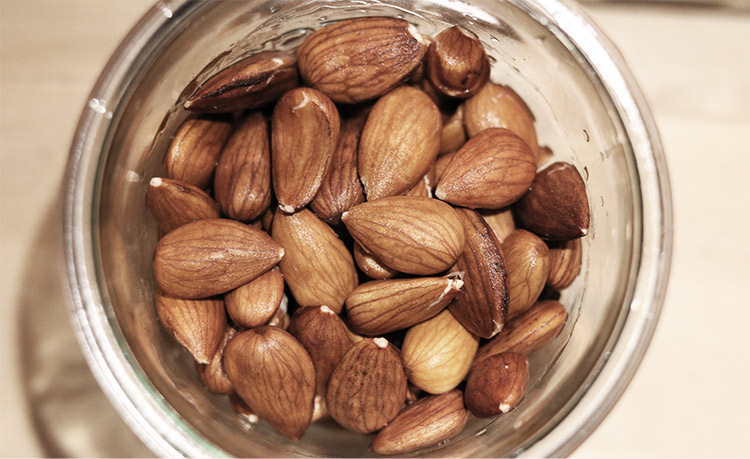
Storage
For storage, larger quantities of nuts or seeds are best soaked covered with water, then thoroughly rinsed with fresh water and dried again in a dehydrator. There are suggestions for how long each seed should be soaked, but to keep it simple, we recommend just soaking them overnight (with the exception of buckwheat).
If you want to be more precise about the soaking time, you can use the phytic acid content of different nuts, seeds, grains, and legumes in the table below as a guide. However, it’s important to keep in mind that each of these can vary greatly in terms of phytic acid content.
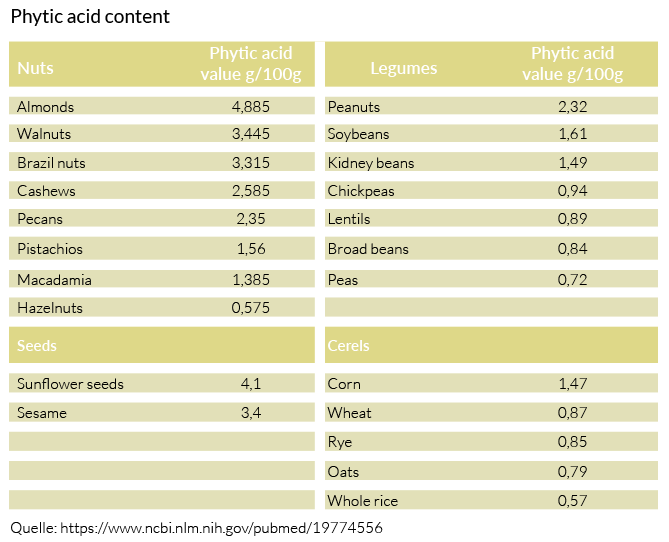
In the morning, the soaked seeds or nuts should be thoroughly rinsed with fresh water, and can then be further germinated in a sieve. Finally, they should be dried in a dehydrator for 12-18 hours.
For storage, it’s important that seeds and co. are dried really well, otherwise they tend to mold!
You can find everything about growing sprouts HERE.
Recipes with Sprouted Seeds and Nuts
Dried Almonds in Three Varieties
One sweet, one salty, and one neutral – a wonderful treat ♥
Crunchy Buckwheat
These crunchy sprouts are the crowning glory of salads, soups, vegetable dishes, or on their own as a snack in between. ♥
You can find everything about sprouting buckwheat HERE.
Would you like to join our unique program, based on nutritional sciences and practice-oriented training for gaining a high level of health?
We are more than happy to inform you about our training program on our website!

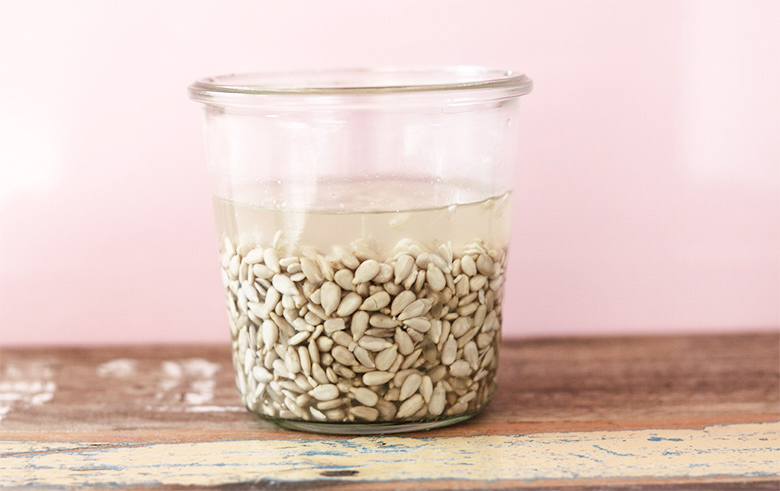


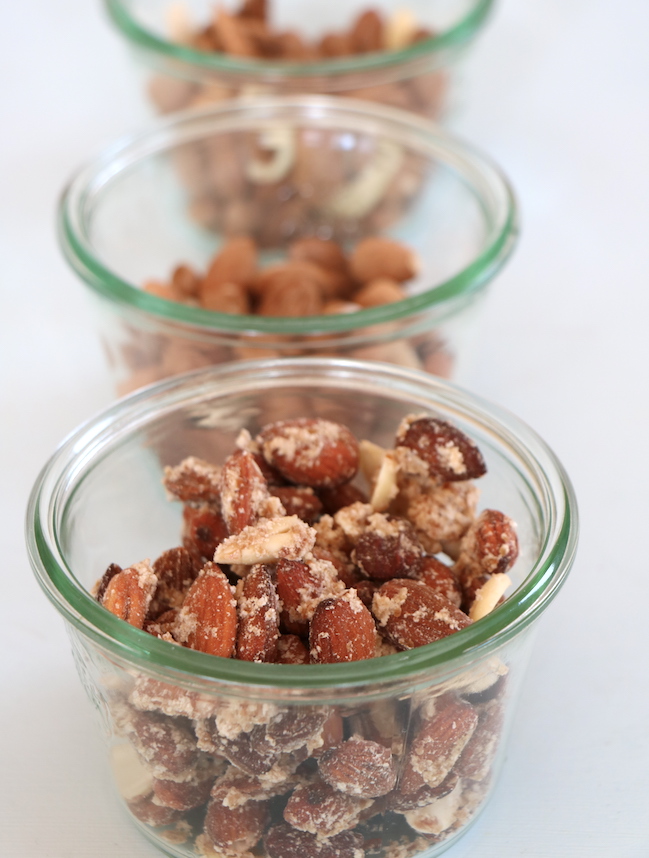
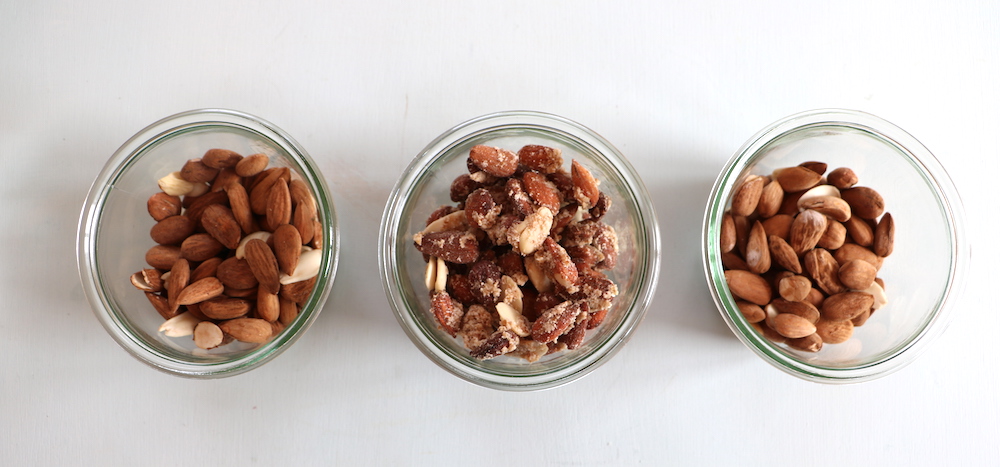
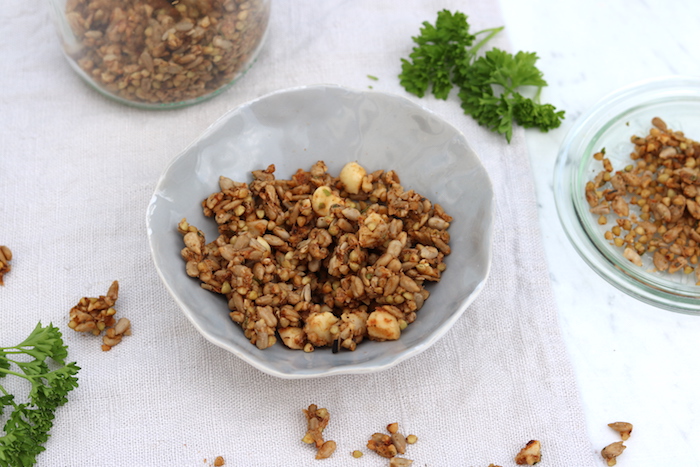


0 Comments